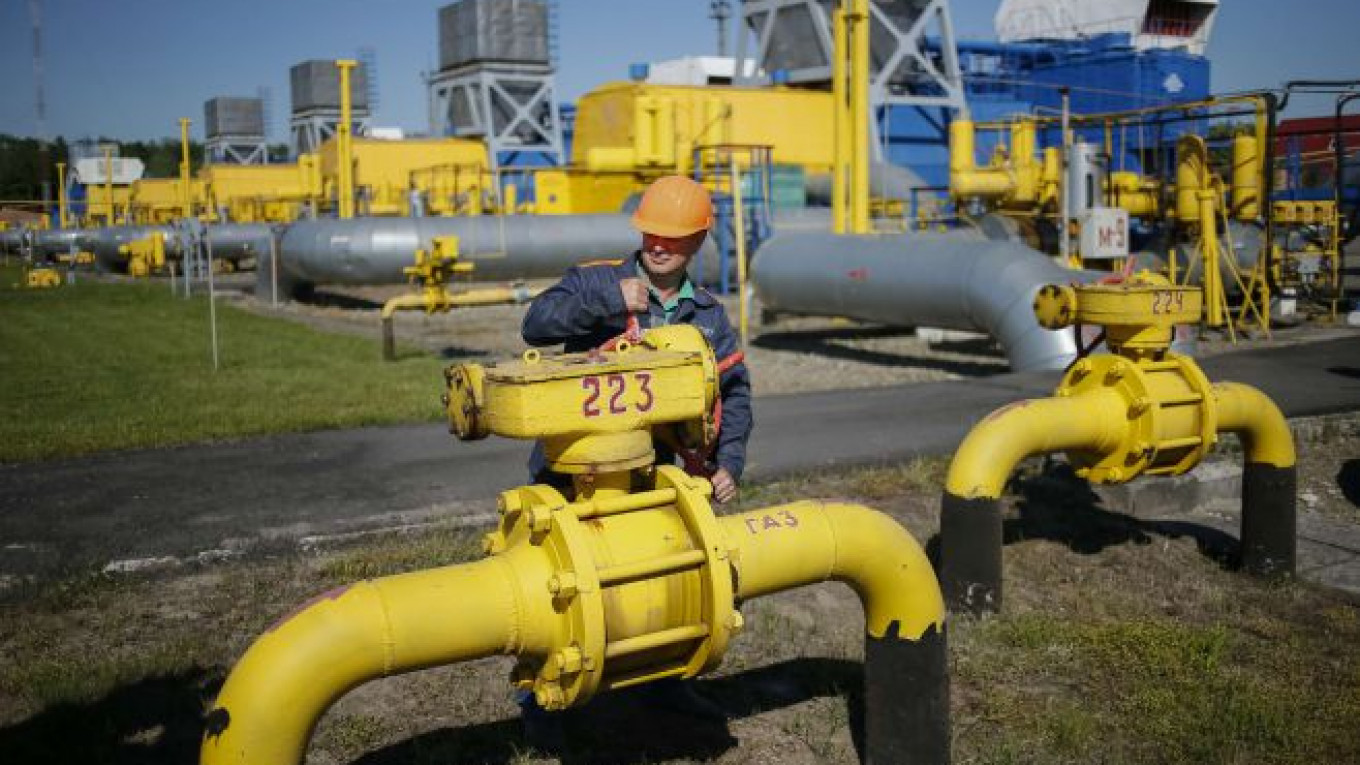Russia and Ukraine signaled on Tuesday they hope to resolve a dispute by the end of this week over billions of dollars in unpaid gas bills that threatens supplies to Europe and is stoking their political conflict.
Russian state-owned exporter Gazprom gave Kiev some respite on Monday by allowing it six more days to pay its debts, averting the risk of an immediate cut in supplies under an advance payment system that had been due to come into force.
Although the two sides disagree over the price Ukraine should pay, signs of compromise are growing after the latest talks brokered by the European Union in Brussels on Monday.
"Talks went for a long time yesterday. … There is an understanding on how to move forward — this is very important," Gazprom spokesman Sergei Kupriyanov told reporters in Moscow.
He said talks could continue later on Tuesday.
Ukrainian Prime Minister Arseny Yatsenyuk hinted that his cash-strapped and indebted country would be now be more flexible over its price demands, although he made clear the price sought by Russia remained far too high.
"We look forward to the completion of negotiations with Russia's Gazprom this week," Yatsenyuk told parliament in Kiev. "We understand it will be hard to reach $268 but we will never accept $500."
Ukraine wants to return to a discounted gas price of $268.5 per 1,000 cubic meters, granted by Moscow as a concession after Ukraine's then president Viktor Yanukovych dropped plans to sign agreements on closer political and trade ties with the EU.
After Yanukovych was ousted in February following months of protests provoked by his policy U-turn, Russia reinstated the earlier price of $485 — the highest in Europe.
President Vladimir Putin does not want tensions over the gas dispute to overshadow a visit to France this week where he is likely to come face to face with U.S. President Barack Obama and European leaders who have imposed sanctions on Russia over its annexation of Crimea.
Ukraine's newly elected president, Petro Poroshenko, is also attending the same event marking the 70th anniversary of the D-Day landings that opened the Western front against Nazi Germany in World War II.
Signs of Compromise
Despite the signs of compromise, Yatsenyuk reiterated the threat of a legal challenge in the Stockholm arbitration court if no agreement is reached.
European Energy Commission Guenther Oettinger is brokering attempts to compromise on the price, with the average gas price paid by Europe to Gazprom at around $370 in 2013.
Late on Monday, after some six hours of talks, Oettinger said the chief executives of Gazprom and Ukraine's Naftogaz had agreed to consider a plan that could avoid price disputes recurring over the European winter when demand peaks.
Gazprom accounts for around a third of Europe's gas needs and supplies to Europe carried via pipelines across Ukraine were disrupted during two previous "gas wars."
Russia said on Monday that Kiev, facing the prospect of its gas debt to Moscow rising to over $5 billion by June 7, had paid $786 million of its bill.
The moves helped reduce tensions in the gas row, despite continuing political recriminations over fighting between pro-Russian separatists and the Ukrainian armed forces that are trying to regain control of territory in east Ukraine.
"Our view is that Gazprom and Naftogaz will reach a compromise on the price at around $350; however, it is unclear how long the discussions will continue and what the possible consequences will be," Russia's VTB Capital said in a research note.
Separately, Gazprom said it planned to export 158.4 billion cubic meters of gas this year to Europe, including Turkey, down from 161.5 bcm shipped in 2013. A senior official said this was a "conservative" forecast which could be revised later.
See also:
Gazprom Gives Ukraine More Time to Pay for Gas
Gazprom Neft Wants 30M Tons More Refining Capacity Outside Russia
A Message from The Moscow Times:
Dear readers,
We are facing unprecedented challenges. Russia's Prosecutor General's Office has designated The Moscow Times as an "undesirable" organization, criminalizing our work and putting our staff at risk of prosecution. This follows our earlier unjust labeling as a "foreign agent."
These actions are direct attempts to silence independent journalism in Russia. The authorities claim our work "discredits the decisions of the Russian leadership." We see things differently: we strive to provide accurate, unbiased reporting on Russia.
We, the journalists of The Moscow Times, refuse to be silenced. But to continue our work, we need your help.
Your support, no matter how small, makes a world of difference. If you can, please support us monthly starting from just $2. It's quick to set up, and every contribution makes a significant impact.
By supporting The Moscow Times, you're defending open, independent journalism in the face of repression. Thank you for standing with us.
Remind me later.






